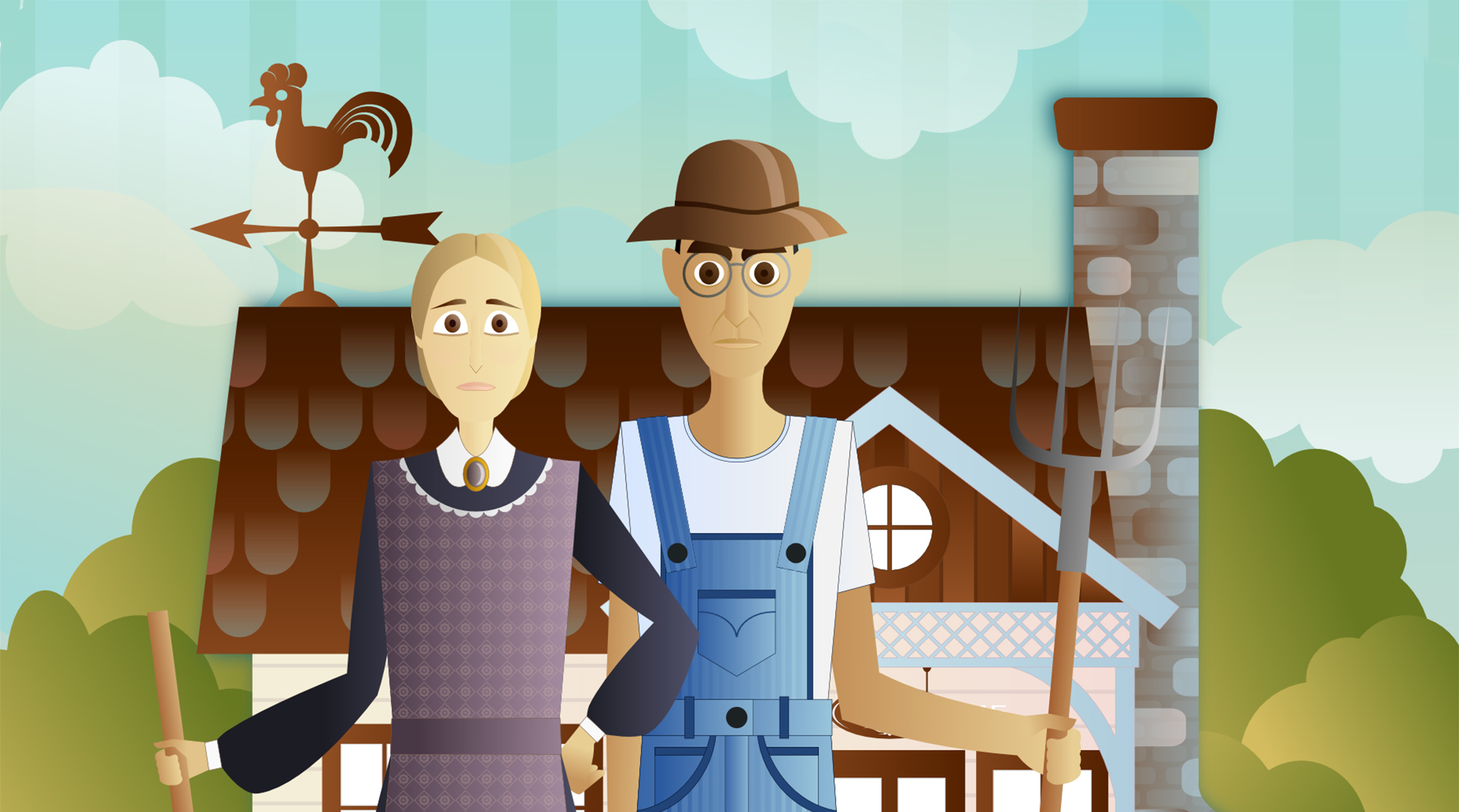This blog post originally appeared on the American Farm Bureau Foundation for Agriculture website.
Everyone loves Old MacDonald; how could you not? He is great for a friendly, fun story or song, but he isn’t doing any favors for the agriculture community. Too often, like old MacDonald, children’s books are full of antiquated farming practices and stereotypes of rural life.
Here are some of the problems we often see in children’s books:
1. Antiquated Farming Practices
Milking a cow on a stool, plowing with a horse, or having an overall “American Gothic” type look. These are “charming” images that children’s books often use in books about agriculture. But these antiquated practices are giving students the wrong impression of how their food is grown.
2. Anthropomorphic Animals
Animals that talk and act like humans. Fables sometimes use these to teach a lesson and, in those circumstances, it is okay – think George Orwell’s “Animal Farm”. This is acceptable because it is obviously pretend; however, when stories have farm animals that talk and act like humans it can give readers the wrong impression. Read more about Animal Agriculture in Children’s books
3. Safety Issues
What do you mean by “safety” issues? Farm safety is a real concern, whether you live on the farm or are just visiting. How to act appropriately around animals and machinery can help prevent accidents. Some picture books do not take farm safety into consideration and have images of children driving tractors or doing jobs too advanced for them. If you see this in a book you are reading, be sure to point it out to the student. Let them know that it isn’t a safe practice, and on real farms that wouldn’t be okay.
Stereotypes and misconceptions of agriculture in children’s pictures books are often the first exposure to agriculture children get. That’s why it is so important that there are accurate books about agriculture for students to read.
Check out AFB Foundation's list of recommended accurate ag books.
